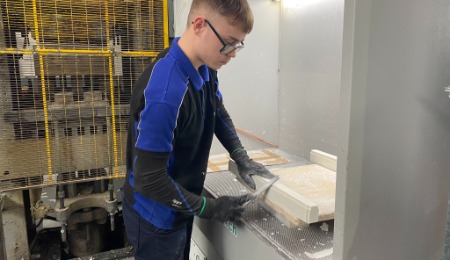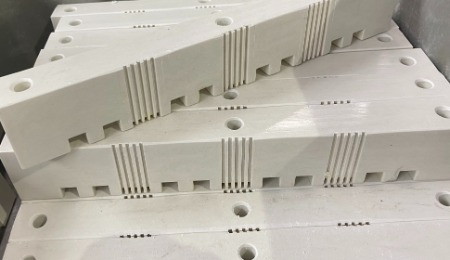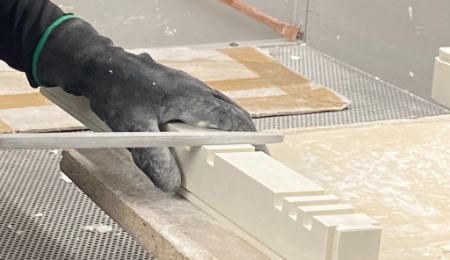We work proudly alongside some of the biggest names from remarkable industries around the world.
Look beyond the walls and into the interiors of any large scale commercial building and you’ll see lots of metallic bars which play a huge part in ensuring electrical safety.
Busbars are rigid strips or bars made of conductive material such as copper or aluminum, and are essential components in electrical systems as they distribute power in panels, switchgear, and other electrical equipment.
Their use simplifies wiring, reduces energy losses, and crucially ensures the safe and efficient operation of various electrical and electronic systems.
They are most commonly used across industrial settings, including manufacturing plants, factories, and processing facilities which have high power requirements, but are also found in office buildings, shopping centers, hotels, hospitals, and data centers and telecommunication facilities which house computer servers and networking equipment.
Residential complexes or apartment buildings with complex electrical distribution needs, sports arenas and stadiums which need to manage the power needs for lighting and sound systems, and transport facilities such as airports, train stations, and bus terminals are also common developments which need busbars in large number.
The size, material, and configuration of busbars need to be carefully selected to meet specific needs, but crucially, they must be securely and safely held in place by a product which can withstand heat, provide insulation, and ensure the stability of the electrical connections at all times.
That is where Fairgrieve Compression Moulding has proved a market leader, by manufacturing electrical busbar supports which we supply in the thousands to clients across the UK and overseas.
What does an electrical busbar support do?
Busbar supports come in various shapes and sizes to accommodate different configurations and applications.
They are required to ensure the safe and efficient operation of electrical systems, and are designed and manufactured to electrically insulate the busbars from the enclosures or support structures they are mounted on.
This insulation prevents electrical faults, such as short circuits or arcing, by maintaining a barrier between the busbars and their surroundings. Crucially they also prevent the busbars themselves from sagging or coming into contact with other components or surfaces, helping to maintain the structural integrity of the electrical system.
As electrical busbars can generate heat due to the flow of electrical current, the supports are also often designed to allow for proper ventilation and heat dissipation, preventing overheating and ensuring the longevity of the system and its components.
In some cases, busbar supports may also be used to create electrical isolation between different sections or phases of the busbars, helping to manage the flow of electricity and prevent unwanted electrical interactions.
Why choose Fairgrieve Compression Moulding for electrical busbar supports?
Fairgrieve Compression Moulding is proud to be a leading supplier of busbar supports to the construction industry, manufacturing thousands of the products – of various sizes – each month.
There are many reasons our busbar supports are in high demand, the first being that they are an industry-leading product with a cost effective to manufacturing process for producing large quantities of consistent quality.
Being compression moulded makes them highly durable and resistant to environmental factors such as moisture, heat, and UV radiation, providing long service life and reducing the need for maintenance and replacement.
A unique solution formulation – which when compression moulded has properties to withstand intense heat and provide electrical insulation – is also a standout feature of our busbar supports, as this is essential when exposed to elevated temperatures.
The material uniformity and consistency in material thickness and density of our compression moulded busbars also ensures reliable electrical insulation is maintained, helping prevent weak points or areas of reduced insulation that could compromise safety and performance.
Our product crucially meets a key specification for busbar supports in providing electrical insulation between the conductive busbars and the surrounding components or enclosures, whilst excellent dielectric properties can also stem the current flow where required, withstanding the electrical stresses and preventing electrical leakage or short circuits.
Need to plan electrical busbar support into your next project? Contact our team today on 0191 415 9292 or email [email protected]


